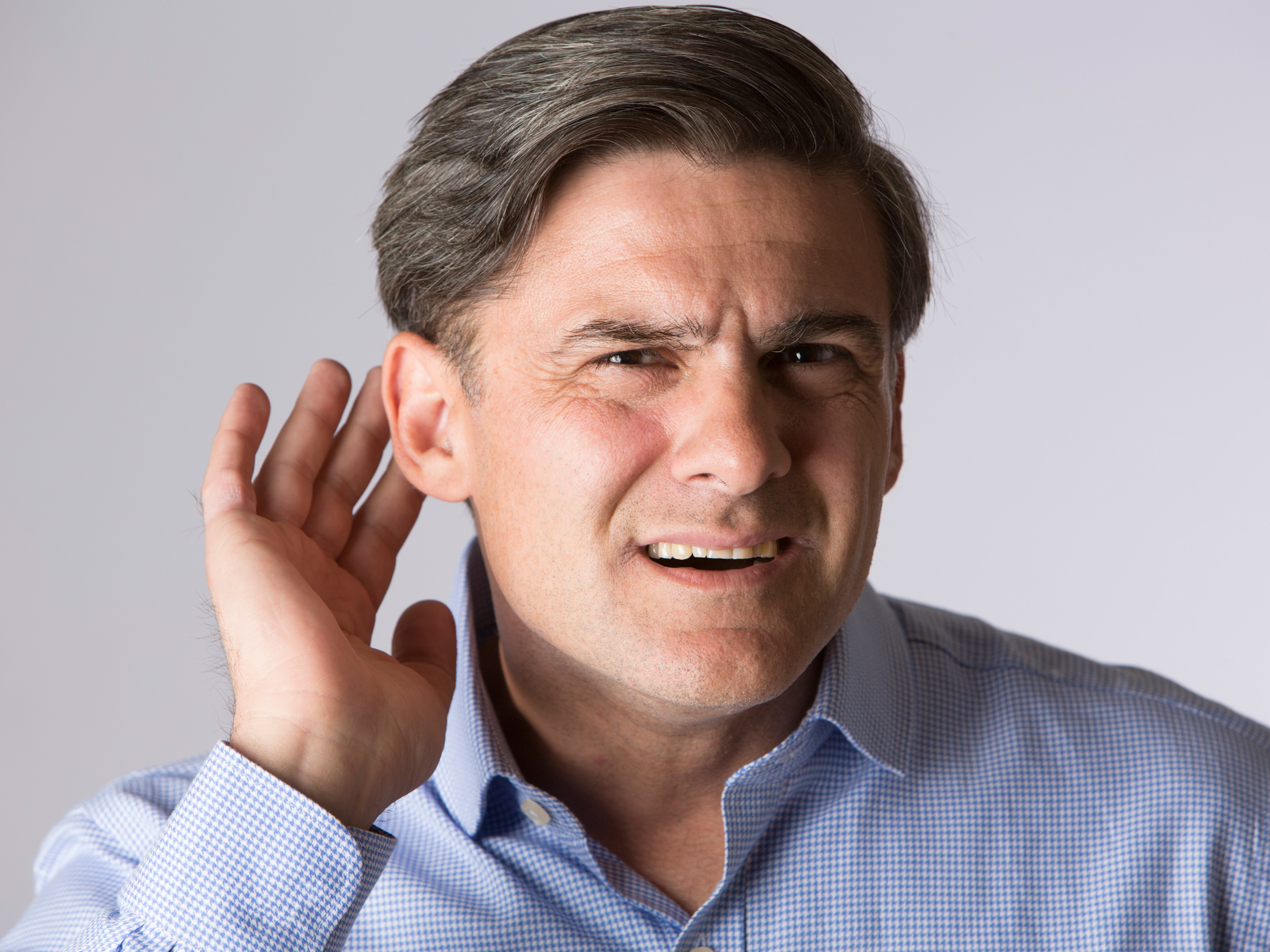Get Easy Health Digest™ in your inbox and don’t miss a thing when you subscribe today. Plus, get the free bonus report, Mother Nature’s Tips, Tricks and Remedies for Cholesterol, Blood Pressure & Blood Sugar as my way of saying welcome to the community!
5 natural hearing loss remedies you’ll want to hear about

Think you have perfect hearing?
Think again. Even if you don’t have any noticeable symptoms of hearing damage, chances are life has taken a toll on your hearing…
In fact, one in four adults who believes they have good or excellent hearing actually has hearing damage they’re unaware of.
In years past, scientists and doctors believed all of this hearing damage was due to having a loud job (like being a construction worker, a garbage man or a landscaper). But now they know this just isn’t so…
Millions of Americans have less-than-perfect hearing because of everyday activities you would never think would cause permanent damage — like sitting in traffic, listening to headphones, using a leaf blower or attending a sporting event. Even listening to an ambulance siren for more than one minute damages your hearing.
Being hard of hearing is hard to avoid…
Basically, hearing damage is inevitable. And it only gets worse with age. In fact, some people begin losing their hearing as early as their 30s. This age-related hearing damage is caused by noise exposure, as well as certain health conditions, medications or genetics.
Some signs that your hearing is starting to go down the tubes include:
- Feeling the need to listen to TV or music louder than other people
- Having trouble hearing people in conversations
- Ringing in the ears
- Problems differentiating certain sounds, like “s” or “th”
But whether you have symptoms or not, you should take preventative measures to maintain healthy hearing and avoid becoming another victim of the hearing damage epidemic….
Obviously, that means taking common sense precautions when it comes to noise exposure — like being more aware of how loud you set your TV volume or going back to using an old fashioned rake instead of a noisy leaf blower.
But there are also other natural ways to give your hearing a much-need boost…
Antioxidants that help your hearing
Over the years, several studies have shown that certain antioxidants may be able to benefit your hearing in a big way…
That’s because the latest scientific evidence shows that noise-related hearing damage is caused when loud noises trigger the formation of free radicals in your ears. These free radicals then begin to damage cells in your ears. But certain antioxidants could help counteract that damage.
A 2007 study from researchers at the University of Michigan, for example, found that high doses of vitamins A, C and E and magnesium may be able to prevent noise-related hearing damage. Guinea pigs who were given this combination of antioxidants one hour before they were exposed to five hours of loud noise experienced significantly less hearing damage than guinea pigs who didn’t receive them.
And another study conducted just this year, shows that the antioxidant NAC (N-acetyl-cysteine) helps to neutralize the free radicals that cause hearing damage in mice.
It’s all about antioxidants…
Now, the studies mentioned above were obviously in animals not humans. But the fact of the matter is, making sure you get enough antioxidants should be a top priority anyway. It will not only protect your hearing but keep you disease-free. NAC, for example, is a potent antioxidant that’s known to help a long list of other health issues, like:
- Polycystic ovary syndrome
- Addiction
- COPD
- Cold and flu
- Obsessive Compulsive Disorder
- Schizophrenia
- Alzheimer’s
- Parkinson’s
- Cancer
- Liver damage
You can take 500 to 600 mg of NAC daily, yearlong, to provide a boost to your ears and overall health. But during cold and flu season you may want to bump up your intake to 1,000 to 1,200 mg per day. That should keep you hearing and feeling well. And don’t forget to get enough vitamin A, vitamin C, vitamin E and magnesium too. All of these antioxidants play an important role in good hearing and good health.
Sources:
-
“For millions of Americans, everyday life takes toll on their hearing.” MedicalXpress. https://medicalxpress.com. Retrieved February 16, 2017.
-
“Antioxidants and hearing loss.” MedicalXpress. https://medicalxpress.com. Retrieved February 16, 2017.
-
Winston Tan, et al. “Novel role of the mitochondrial protein Fus1 in protection from premature hearing loss via regulation of oxidative stress and nutrient and energy sensing pathways in the inner ear.” Antioxidants & Redox Signaling, 2017.
-
“Age-related hearing loss.” MedlinePlus. https://medlineplus.gov. Retrieved February 16, 2017.
-
“High Doses of Antioxidants May help Prevent Hearing Loss.” American Hearing Research Foundation. http://american-hearing.org. Retrieved February 16, 2017.
-
G. Le Prell, et al. “Nutrient plasma levels achieved during treatment that reduces noise-induced hearing loss.” Translational Research, July 2011;158(1):54-70.
-
“NAC the Super Nutrient.” BetterNutrition. http://www.betternutrition.com. Retrieved February 16, 2017.












